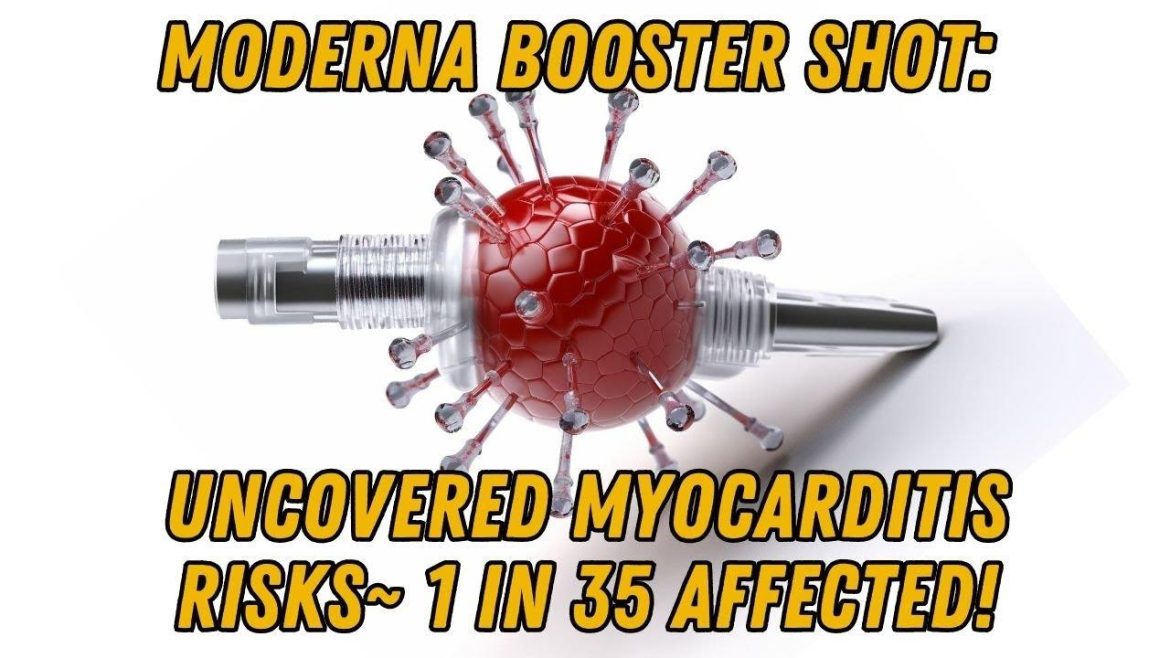In recent months, concerns have arisen regarding the potential link between the Moderna COVID-19 booster shot and myocarditis, a condition involving inflammation of the heart muscle. As vaccination campaigns continue globally, understanding the risk factors and implications of such concerns is crucial for informed decision-making and public health policy. This article explores the current evidence, discusses risk factors, and examines the broader implications of these findings.
Understanding Myocarditis And Its Implications
Myocarditis is a condition characterized by inflammation of the heart muscle, which can affect its ability to pump blood effectively. It can be caused by viral infections, autoimmune diseases, and, potentially, certain medications or vaccines.
Symptoms vary widely but can include chest pain, shortness of breath, fatigue, and in severe cases, heart failure.
Vaccines, including those developed to combat COVID-19, have been scrutinized for their potential to trigger myocarditis.
This scrutiny intensified with reports of myocarditis cases following vaccination, particularly among younger males.
However, it’s essential to distinguish between correlation and causation, as well as to understand the actual risk posed by vaccines.
SEE ALSO: Does Myocarditis Cause Fever?
Examining The Evidence: Myocarditis And Moderna Booster Shots
Reports and Studies: Initial reports suggested an increased risk of myocarditis, particularly after the second dose of mRNA vaccines like Moderna. These cases were predominantly seen in younger age groups, particularly males under 30 years old.
However, subsequent studies have sought to quantify and contextualize these risks.
Risk Factors: Certain demographic factors, such as age and sex, appear to influence the likelihood of myocarditis post-vaccination.
Younger males seem to be at higher risk, although the absolute risk remains low. Other factors, such as prior history of myocarditis or cardiovascular disease, may also play a role in susceptibility.
Clinical Observations: Clinically, myocarditis cases following vaccination have generally been mild and manageable, with most patients recovering fully after treatment. The CDC and other health authorities have continued to monitor and assess these cases to refine recommendations and guidelines.
Public Health Considerations And Recommendations
Balancing Risks and Benefits: Vaccination remains a critical tool in combating the COVID-19 pandemic, preventing severe illness, hospitalization, and death. The risk of myocarditis following vaccination must be weighed against the risks associated with COVID-19 infection itself, which can also lead to myocarditis and other severe complications.
Regulatory Responses: Health agencies, including the FDA and CDC, have responded to these concerns with updated guidance and recommendations. This includes monitoring and reporting adverse events, refining vaccine guidelines, and communicating transparently with the public about risks and benefits.
Future Directions: Ongoing research aims to better understand the underlying mechanisms of vaccine-related myocarditis and to identify potential risk factors more accurately. This research is crucial for refining vaccine strategies, developing targeted interventions, and enhancing vaccine safety profiles.
Conclusion
The question of whether the Moderna booster causes myocarditis is complex and warrants careful consideration of available evidence, risk factors, and public health priorities. While reports of myocarditis following vaccination are concerning, particularly among younger males, the overall risk remains low compared to the benefits of vaccination in preventing COVID-19-related complications.
Moving forward, continued surveillance, research, and transparent communication are essential to inform policy decisions and public health strategies. As the global community navigates the ongoing COVID-19 pandemic, maintaining trust in vaccination programs requires a balanced approach that prioritizes safety while maximizing public health benefits.
In conclusion, while concerns about myocarditis post-Moderna booster vaccination are valid, current evidence suggests a manageable risk that should be weighed against the broader benefits of vaccination. By staying informed and making evidence-based decisions, individuals and health authorities can work together to mitigate risks and protect public health effectively.
FAQs
Can you get myocarditis from the Moderna booster shot?
Myocarditis has been reported as a rare side effect following mRNA COVID-19 vaccines, including the Moderna booster shot. The risk appears to be higher in younger males, particularly after the second dose. However, it’s essential to note that the absolute risk of developing myocarditis after vaccination is low, and most cases reported have been mild and manageable.
What does the beginning of myocarditis feel like?
The onset of myocarditis can vary widely. Common symptoms may include chest pain or pressure, shortness of breath, fatigue, rapid or irregular heartbeat, and swelling in the legs, ankles, or feet. Some people may also experience flu-like symptoms such as fever, body aches, and fatigue.
Does myocarditis go away by itself?
In mild cases, myocarditis may resolve on its own with rest and supportive care. However, more severe cases may require medical intervention, including medications to reduce inflammation and manage symptoms. Regular monitoring and follow-up with a healthcare provider are essential to ensure proper recovery and to address any complications that may arise.


